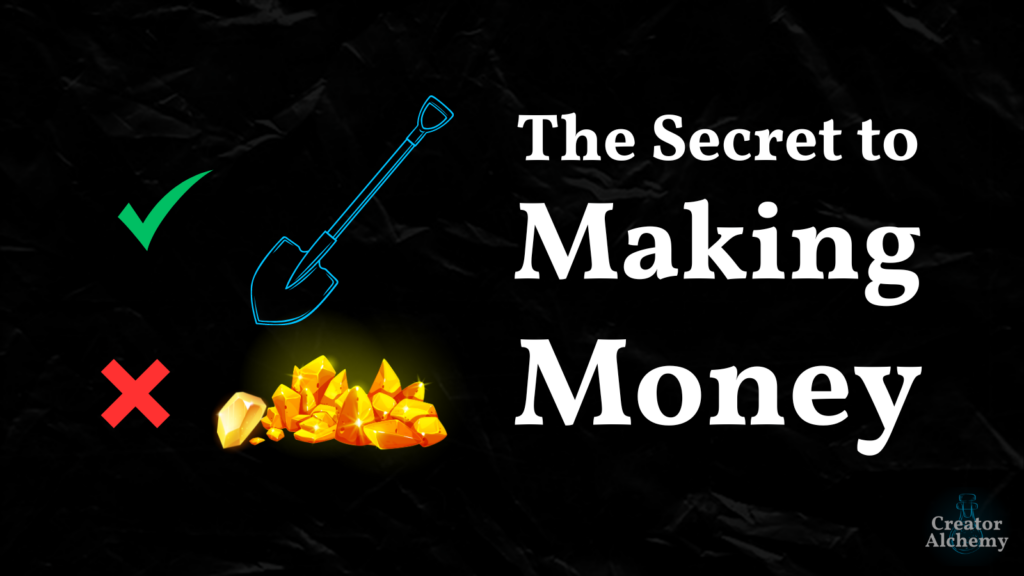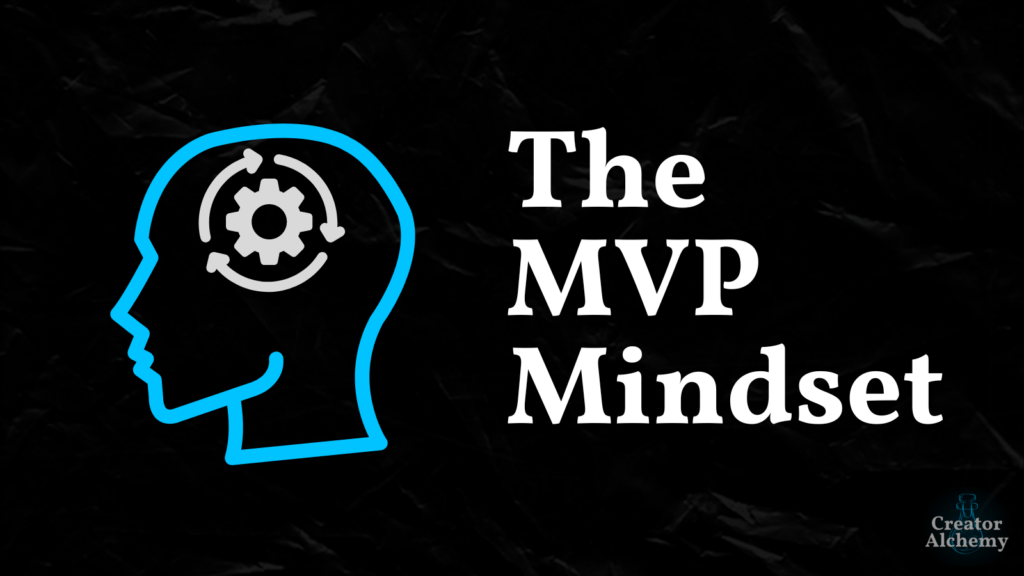Lately, I’ve had a craving to play video games. Like, a constant nagging in the back of my mind throughout the day.
It’s distracting, like any craving.
But I’m working on a big project and don’t have space in my schedule to play a game right now.
Because when I play a video game, I kick into full-on gamer mode. Like, holed up in my room for 8-12 hours playing nonstop, all-nighter until the sun comes up, obliterate my sleep routine and productivity the next day level of gaming.
Because I, like many creators and entrepreneurs, am prone to extremes. It’s easier for me to outright not play video games than try to play them in “moderation,” whatever that means.
Obsession is a superpower. But it can also lead to all-or-nothing habits.
Productivity gurus would say things like:
- time block periods to play
- play at the end of the day to reward yourself for working hard
- play while you’re on a stationary bike or treadmill to habit stack
None of these are helpful.
Because most of the time, productivity advice sucks.
And the reason it sucks is it targets the symptoms of a behavior instead of the root cause.
Wanting to play video games isn’t my actual problem—it’s just a superficial symptom.
Maybe you’re struggling with wanting to play video games like me, or maybe you’re struggling with things messing up your sleep by staying up late playing on your phone, wasting time throughout the day mindlessly scrolling social media, or something else.
Here’s how to identify what’s hiding behind your behaviors, and what to do about it…
•••
A Psychologist’s Secret Weapon
As a psychologist, I’m trained to understand and modify how people think and behave (but like, in an ethical way, usually).
One of the most powerful tools in my arsenal, and one of the foundational skills of a world-class coach, is to do what’s called a functional analysis.
It sounds fancy, but all a functional analysis really means is looking at a given behavior and asking, “What function does this serve?” Aka, what purpose does it have?
Humans, or any creature, don’t engage in any behavior that doesn’t serve some function.
Everything we do serves a function—even if it’s unhealthy or destructive.
This is where most productivity advice falls short—it only addresses the superficial symptoms and overlooks the root causes.
Until you understand why you do a behavior, you can’t modify it.
If you engage in behaviors you want to change, you have to first understand what function they serve.
Once you understand this function, you can find an alternative behavior that serves the same function, but is healthier.
Here’s what I mean…
•••
Functional Analysis in Action
Let’s take 3 “bad” habits creators struggle with and run a functional analysis…
1. Staying up late to play on your phone and watch YouTube
Aka, “revenge bedtime procrastination,” this is something many of us struggle with.
But why do we do this when we know it’ll mess up our sleep and cause us to be more tired and less productive tomorrow?
A functional analysis might indicate it serves the function to:
- get mental stimulation
- mentally unwind before bed
- catch up with what’s going on in your friends’ lives
Notice how the first two contradict each other?
This is the beauty of running a functional analysis—a given behavior can serve tons of different functions. But until you run it, you have no idea why you do what you do.
A productivity guru might tell you to put your phone down and meditate before bed because they assume the only reason someone would look at their phone at bedtime is to unwind.
But maybe for you, playing on your phone helps you get some much-needed mental stimulation because you spend all day going through the motions with work you don’t fully enjoy or your obligations (family, job, errands, etc.) make it hard for you to get some “me time” throughout the day.
So if you blindly followed the productivity guru’s advice and meditated before bed, you’d last a few minutes before your skin started crawling, you started thinking about your to-do list, and waited out the clock until you could stop meditating and finally check your phone anyway.
2. Mindlessly scrolling social media
How many times do you check social media throughout the day? Yes, sometimes we get on social media to “grow our brand,” but most of the time it serves a different function.
That could be to:
- seek validation
- connect with friends
- find inspiration for future content
See how just understanding the root cause of why you’re checking social media starts to give you ideas about other, “healthier” things you could do that serve the same function?
3. Craving video games
So why have I been craving video games? What function does playing video games serve?
- I prefer single-player games, so it isn’t for social connection.
- My work is stimulating, so it isn’t to overcome boredom.
- I love my life and routine, so it isn’t escapism.
So what the hell is the function?
Simple: Video games give me a sense of achievement and progress.
See, with long-term projects, it’s easy to grind for days or weeks without seeing any signs of progress.
I’m not really craving video games, I’m craving quick wins and a clear indication I’m making progress.
So now we know the function some of our behaviors serve.
What can we do about it?
Here are some ideas….
•••
Intentional Interventions
After you run a functional analysis, the next step is coming up with other things you can do that serve the same function, but are more helpful in the long run and align with your values and goals.
Let’s revisit those same 3 behaviors…
1. Staying up late to scroll social media and YouTube
If the function is to get mental stimulation:
Then possible alternative behaviors include:
- read a book
- listen to a podcast
- watch a documentary
If the function is to unwind before bed:
Then possible alternative behaviors include:
- go for a walk an hour or two before bed
- read or listen to fiction
- meditate
If the function is to catch up with friends:
Then possible alternative behaviors include:
- DM, text, or call a friend earlier in the day
See how much better these are than destroying your sleep hygiene and ruining your energy the next day to stay up playing on your phone every night?
2. Mindlessly scrolling social media
If the function is to seek validation:
Then possible alternative behaviors include:
- learn to validate yourself
- surround yourself with supportive people so you don’t need validation from strangers on the internet
If the function is to connect with friends:
Then possible alternative behaviors include:
- DM, text, or call a friend earlier in the day
- schedule an irl hangout
If the function is to find inspiration for future content:
Then possible alternative behaviors include:
- read a book
- listen to a podcast
- go for a walk with a creator friend
Notice how a lot of the alternative behaviors can serve different functions?
Reading a book can help you overcome boredom, unwind before bed, and get inspiration for future content.
But knowing which function it’s serving for you will help you get the most out of it.
3. Craving video games
If the function is to get a sense of achievement and progress:
Then possible alternative behaviors include:
- build “quick wins” into workflow
- break long-term goals into short-term, easily achieved daily tasks
- chart progress on daily and weekly basis to see how much you’ve accomplished
See why the productivity gurus would’ve missed the mark with their advice to schedule time to play video games or use them as a reward?
That’s not why I’m craving them.
I just want a sense of progress.
So if I find better ways to give myself a sense of progress, my cravings will go away.
Because once I build in a sense of progress, that need is met. So video games will no longer serve a function, since something else is already fulfilling it. Which means my cravings to play video games will no longer serve a function and go away.
Side note: There’s nothing wrong with playing video games—I fully intend to play them in the future, just not while I’m in the middle of an important project.
•••
Final Thoughts
A functional analysis is situational, meaning you and I could both engage in the same behavior, but that behavior serve different functions for each of us.
There’s no one-size-fits-all explanation for why we do what we do. It’s up to us to figure that out for ourselves—and a functional analysis is a proven tool to do this.
There are some general guidelines about possible functions a behavior serves, but you ultimately have to run a functional analysis for yourself. Don’t blindly accept someone else’s opinion about why you do what you do—not even me.
But now you have every psychologist’s secret weapon, so I hope you use it to reach your potential.
Don’t listen to the productivity gurus.
Run a functional analysis for yourself, then go from there.
•••
P.S.
Sometimes the function a behavior serves is to help us avoid something we’re afraid of, which is why so many people struggle with things like Shiny Object Syndrome, perfectionism, and procrastination. I go over this in-depth, plus strategies to overcome these, in Build an Intentional Life.
So check that out if you’re interested in diving deeper into the psychology behind the most common obstacles that hold us back from reaching our potential and building a fulfilling life and thriving business.



